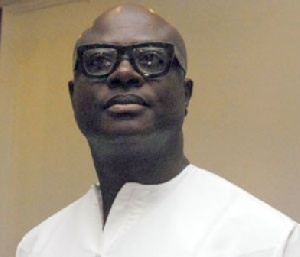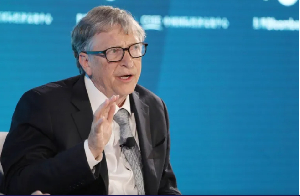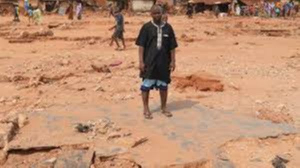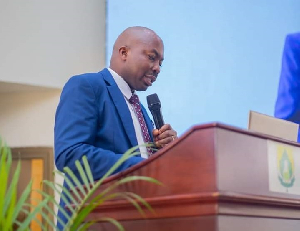It has emerged that the Chief Executive Officer of the Kumasi Metropolitan Assembly (KMA), Mr. Kojo Bonsu gave leadership of the Muslim Community at Tafo in the Ashanti Region the go ahead to construct the controversial fence wall around a piece of land at the Tafo cemetery. The order resulted in clashes between the Muslim group and loyalists of the Tafo Traditional Council.
According to reports, the clashes were ignited by an order from the Tafo chief for the cemetery fence wall to be demolished because he was not aware of the construction.
When the chief instructed his men to pull down the wall, they were met with a fierce protest from the Muslim community. Two people died in the process.
Following the clash, the next day, scores of young people in the area gathered in front of the Chief’s palace, in anticipation of possible attacks from the Muslim youth in the area.
That was after the police had confirmed the arrest of one person who was firing gunshots indiscriminately in the company of a gang. The altercation on the part of the Muslim youth was perhaps informed by a letter their leadership wrote to the KMA, headed: “Permission to Fence the Tafo Public Cemetery”, which was duly responded to and approved by Mr. Kojo Bonsu.
In the said reply, which was addressed to the Secretary of the Concerned Muslim Youth Movement and copied to the Regional Chief Imam, Abdul Mumin Harun, the KMA boss wrote: “I refer to your letters to the Kumasi Metropolitan Assembly on the above subject in which letters you requested permission from the Assembly to construct a fence wall around the Tafo Cemetery as your contribution to the development of the Region,” expressing his sincere gratitude to the Muslim group for the initiative.
He remarked: “Your effort is laudable. I note from the title of your letters that you recognise not only the fact that the cemetery, the subject matter of your interest is a public one, but also your commitment and indeed undertaking that you will carry out the construction of the fence wall in accordance with the technical advice of the Assembly.
“Having said that, I think it is necessary to emphasize your recognition of the public nature of the facility within the territorial jurisdiction of the Assembly, the Assembly retains total responsibility for it, for which reason your construction of the fence wall should not in any way be understood as suggesting even remotely that the Assembly’s authority and superintendence over it is shared with you,” the letter stated in part.
Mr. Kojo Bonsu added that: “the Assembly is by law the sole and exclusive political and administrative authority in the metropolis, all use of the cemetery is subject to the exclusive direction and supervision of the Assembly,” stressing that the Assembly consented to their request to construct the fence wall around the Tafo cemetery.
That notwithstanding, the agreement would be subject not only to the “technical advice of the cemetery”, but also that, the construction would be undertaken under the auspices of the Assembly with the effect that the construction would be carried out under the supervision and control of the Assembly.
The Assembly, however, indicated that the Muslim group could support the construction of the project “with labour and building materials, including cement, blocks etc.” It would be recalled that a clash in Tafo over a piece of cemetery land led to the death of 25 year old Aminu Sulemana, leaving several others injured and properties destroyed after the Muslim youth attacked the chief’s palace.
A mosque and some churches were reportedly destroyed in the clashes, prompting the Ashanti Regional Security Council to impose a dusk to dawn curfew so as to protect lives and property. Led by the Ashanti Regional Police Commander, Deputy Commissioner of Police (DCOP) Kofi Boakye, the police arrived in the town with support from the military.
Meanwhile, the Assembly member for Ridge Nhyiaeso in Kumasi, Abraham Boadi, accused the Kumasi mayor for the violent clashes. His reason was that he permitted the Muslim group to fence the said cemetery in 2014, without due diligence, even after the assembly had approved about GHC1.5 Billion for the project.
Regional News of Tuesday, 1 March 2016
Source: The Chronicle













